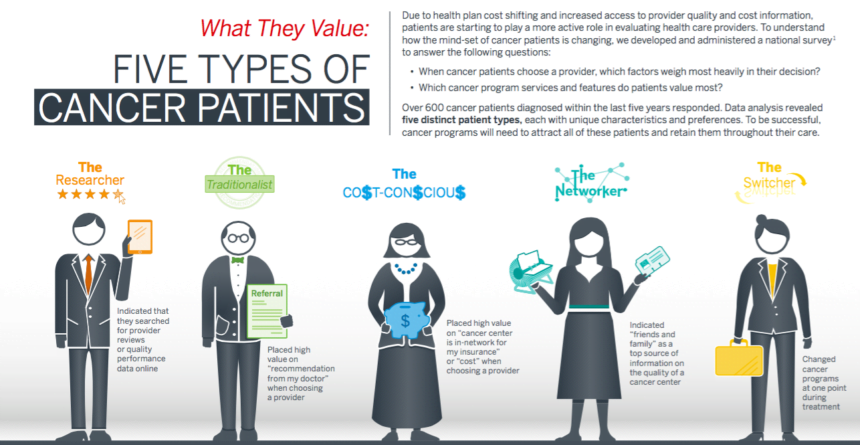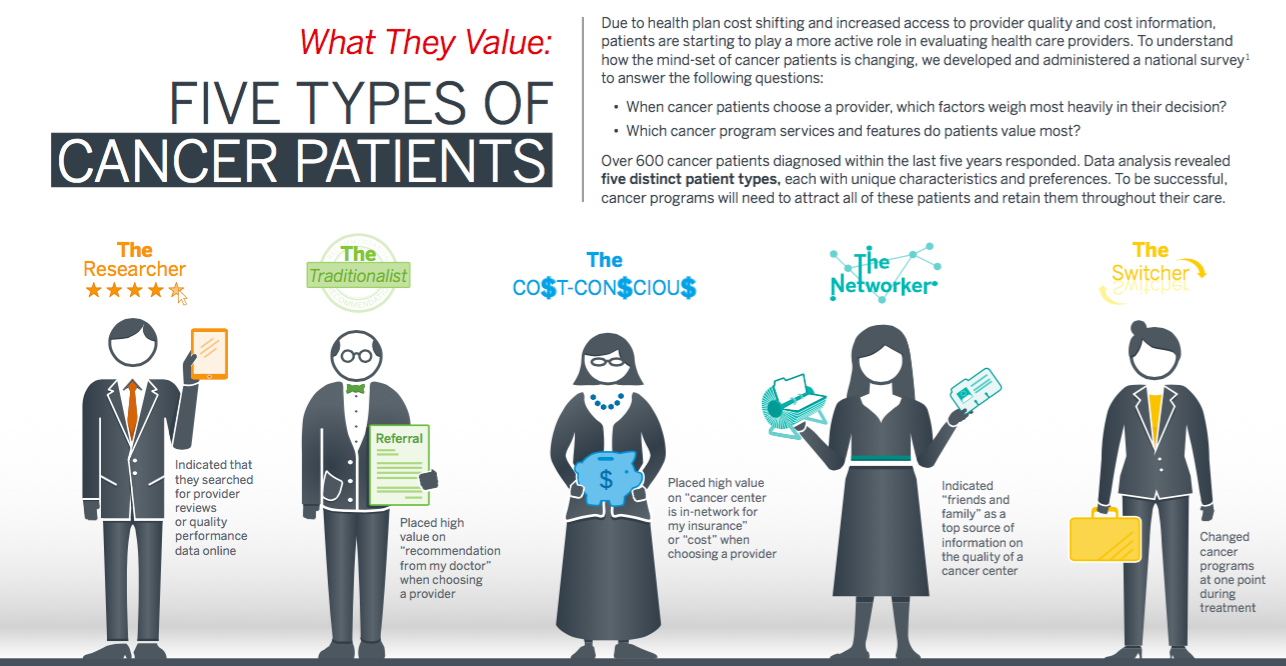(This post was originally published on the Patients Helping Patients blog on Patient Empowerment Network)
The patient voice is being heard and it is being researched! I came across 2 new articles recently that resulted from research done on what patients want and how they decide on a course of treatment.
(This post was originally published on the Patients Helping Patients blog on Patient Empowerment Network)
The patient voice is being heard and it is being researched! I came across 2 new articles recently that resulted from research done on what patients want and how they decide on a course of treatment.
The Wall Street Journal article, Men and Women Face Cancer Differently, was based on a social media study by Sloan Kettering Cancer Center on how men (with prostate cancer) and women (with breast cancer) choose treatment options. The study concluded that men choose treatment based on a scientific approach and women tend to rely more on support groups and sharing of information with other women. The WSJ article warns :
“The findings have revived old controversies about gender differences and the dangers of playing into stereotypes, in this case the thoughtful, deliberative male versus the anxious and emotional female. Also, the study, part of a fast-growing field of analyzing data from social media, is by no means traditional academic research, with its emphasis on randomized trials and peer reviews. “
The study was done by analyzing thousands of social media posts by patients with cancer and was conducted by Treato, a health care data analytics firm. Treato’s CEO is quoted as pointing out the existence of a “parallel universe” online where patients share thoughts and seek advice. It is now possible, he said, “to collect this massive amount of conversation” and shed light on “the human angle, the feelings, the decisions” that drive a cancer patient.
It is not so much the gender difference that strikes me as the interesting fact about this article, but more the way the study was researched (by social media posts!) and the fact that the researcher, Treato, made reference to the “parallel universe” of HealthCare Social Media (#HCSM) that many cancer patients are well aware of, and use almost daily.
In concluding, the WSJ article mentions Dr. Deanna Attai (@DrAttai), a breast surgeon at UCLA Health in Los Angeles who co-moderates an online breast cancer group (#BCSM), as saying that the study should be a wake-up call to physicians to venture onto social media and be a part of their patients’ world.
The second article (actually an infographic – see below) is from research done by the Advisory Board Company’s Oncology Round Table. The Advisory Board is a research, technology and consulting firm that offers performance improvement to healthcare companies. Their Oncology Round Table offers specific information on strategic guidance, market research, toolkits and expert advice for oncology leaders.
The study was done by surveying over 600 cancer patients diagnosed within the last 5 years as to how they choose a provider and which program services and features they value the most.
The study then broke down the patients into 5 types:
- The Researcher: The 41% of survey respondents who looked online for quality performance data or provider reviews.
- The Traditionalist: The 25% of survey respondents who placed the most importance on “recommendation from my doctor” when deciding where to go for cancer care.
- The Cost-Conscious: The 39% of survey respondents who placed the most importance on “cancer center is in-network for my insurance” and “cost” when deciding where to go for cancer care.
- The Networker: The 36% of survey respondents who said their friends and family would be a top source of quality information on a cancer center.
- The Switcher: The 8% of survey respondents who changed providers due to dissatisfaction with their care.
The infographic lists what each group cares about and cares less about, as well as compares them to the other groups.
Again, it is not so much the categorization of patient types that is interesting about this study and resulting infographic, but the fact that these patients are being researched and studied to find out how they search for information and what is important to them. And the results are offered to companies and providers who will pay attention to this information and try and offer these patients what they need and what they are looking for.
Both studies tell me that this is important information to companies now. A lot of time, energy and funding is going into researching “The Patient Voice”. People are paying attention and analyzing the data to see how patients act, how they search for information and how they make their decisions based on the information they find.
And the trends are there. Patients listen to their doctors, but they also listen and learn from other patients, from online support groups and forums. And they will switch providers if they are not happy with their care.
And many patients pay attention to, and use social media as a source of information and a method of sharing thoughts and ideas. I agree with Dr. Attai in saying that these studies are a wake-up call to physicians, and yes, to industry, to pay attention to the patient voice.
Below is a partial view of the infographic from the Advisory Board. For the full infographic, please click here: Advisory_Board_infographic








